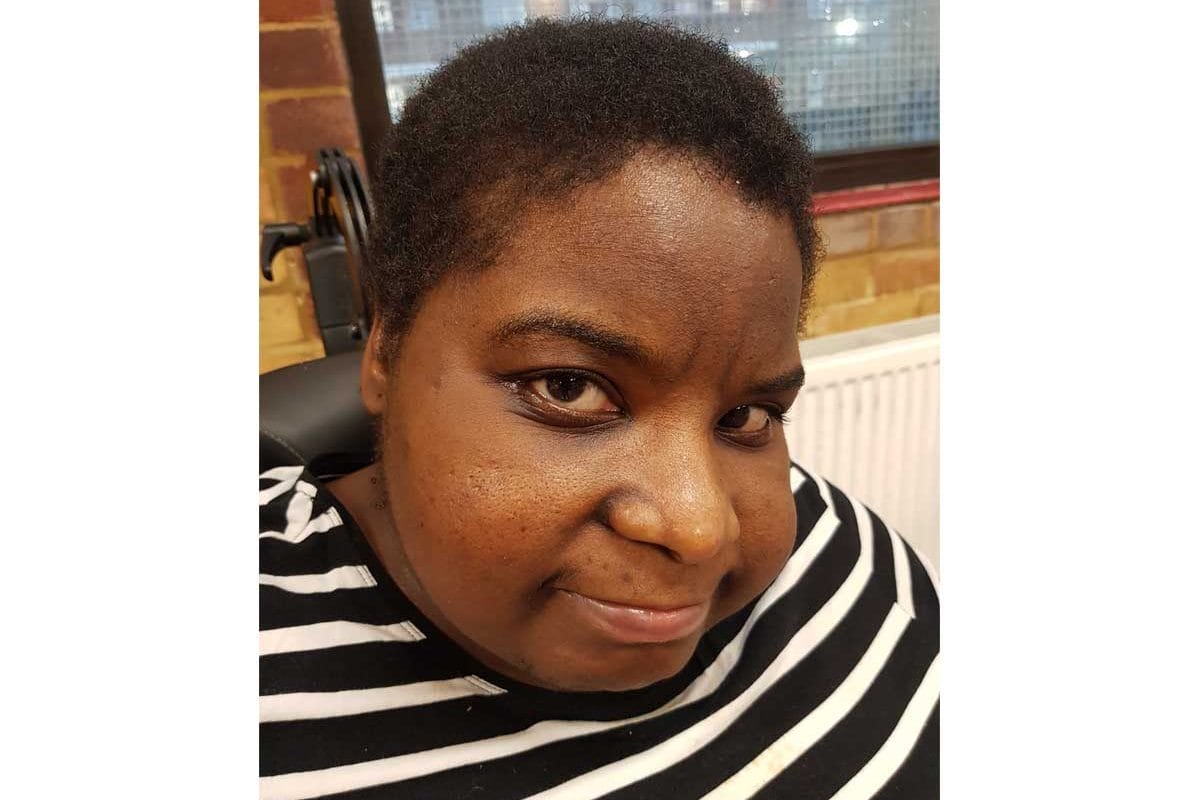The COVID-19 lockdowns saw many of us with drastically different hairstyles to normal – fringes growing out, hair getting longer as the months went on, and even some DIY haircuts from shaky handed partners.
It was annoying not being able to get to a hairdressers or barbers while they were closed, but most of us were still able to choose how our hair looked day to day.
Tinu Adio Pierier is a Nigerian woman with learning difficulties and physical disabilities, who adored her long hair. Helen Barnard, who supports Tinu and is the director of the Multi Activities Centre that Tinu attends, described how Tinu’s long hair which she wore in plaits was her signature look. It was a defining feature for her.
But during lockdown, and whilst having to isolate due to being a vulnerable adult, Tinu wasn’t able to get her hair done. It got longer and longer, and it became too difficult for Tinu’s mum to look after. So Tinu’s carers cut her long hair to an inch long. This drastic change completely changed how Tinu felt about her hair and herself. The choice had been taken from her.


Where once her long hair had made her feel bubbly and confident, her short hair made her feel the opposite. She worried people would laugh, and became shy and quiet. She wore a hat all the time, and still wears one now when she goes out, not wanting people to see her new shorter hair. With long hair she showed it off proudly, though Helen is keen to say – everyone told her she was beautiful with both hair lengths.
Our hairstyle can change so much about the way that we feel about ourselves. For many people the way they wear their hair can be a way of expressing themselves and their identity. Being able to choose what we want to say about ourselves with our hair is a powerful tool.
But hair grows, hair is renewable, and soon Tinu will have a bit more control again. She met Heather, a cab driver who sometimes drove Tinu during lockdown.
Heather offered to help Tinu plait her hair – to help look after it and to help it grow it once more.

With thanks to Tinu Adio Pierier and Helen Barnard.


